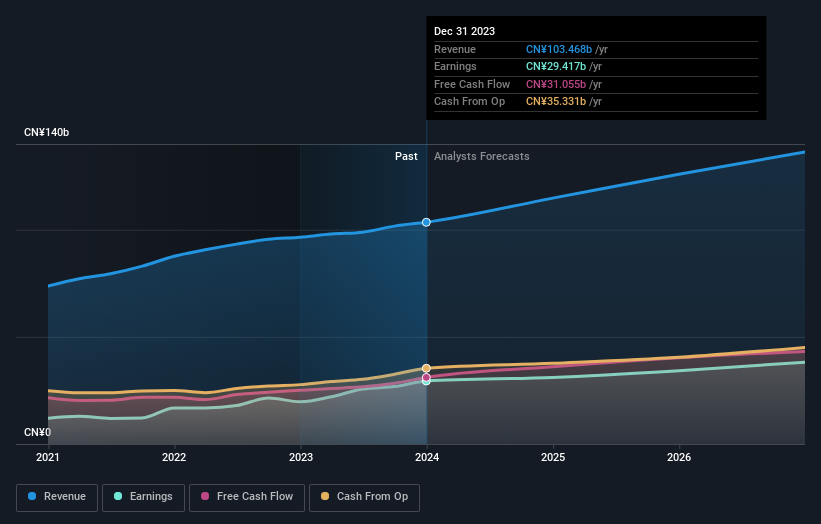Following recent decline, NetEase, Inc.'s (NASDAQ:NTES) top shareholder CEO Lei Ding sees holdings value drop by 4.1%
Key Insights
Significant insider control over NetEase implies vested interests in company growth
The top 3 shareholders own 51% of the company
Every investor in NetEase, Inc. (NASDAQ:NTES) should be aware of the most powerful shareholder groups. The group holding the most number of shares in the company, around 46% to be precise, is individual insiders. In other words, the group stands to gain the most (or lose the most) from their investment into the company.
As market cap fell to US$66b last week, insiders would have faced the highest losses than any other shareholder groups of the company.
Let's delve deeper into each type of owner of NetEase, beginning with the chart below.
View our latest analysis for NetEase
What Does The Institutional Ownership Tell Us About NetEase?
Many institutions measure their performance against an index that approximates the local market. So they usually pay more attention to companies that are included in major indices.
NetEase already has institutions on the share registry. Indeed, they own a respectable stake in the company. This implies the analysts working for those institutions have looked at the stock and they like it. But just like anyone else, they could be wrong. If multiple institutions change their view on a stock at the same time, you could see the share price drop fast. It's therefore worth looking at NetEase's earnings history below. Of course, the future is what really matters.
Hedge funds don't have many shares in NetEase. With a 46% stake, CEO Lei Ding is the largest shareholder. With 2.7% and 2.3% of the shares outstanding respectively, BlackRock, Inc. and The Vanguard Group, Inc. are the second and third largest shareholders.
A more detailed study of the shareholder registry showed us that 3 of the top shareholders have a considerable amount of ownership in the company, via their 51% stake.
While studying institutional ownership for a company can add value to your research, it is also a good practice to research analyst recommendations to get a deeper understand of a stock's expected performance. Quite a few analysts cover the stock, so you could look into forecast growth quite easily.
Insider Ownership Of NetEase
The definition of an insider can differ slightly between different countries, but members of the board of directors always count. Company management run the business, but the CEO will answer to the board, even if he or she is a member of it.
Insider ownership is positive when it signals leadership are thinking like the true owners of the company. However, high insider ownership can also give immense power to a small group within the company. This can be negative in some circumstances.
Our most recent data indicates that insiders own a reasonable proportion of NetEase, Inc.. It has a market capitalization of just US$66b, and insiders have US$31b worth of shares in their own names. That's quite significant. Most would be pleased to see the board is investing alongside them. You may wish to access this free chart showing recent trading by insiders.
General Public Ownership
The general public, who are usually individual investors, hold a 19% stake in NetEase. While this group can't necessarily call the shots, it can certainly have a real influence on how the company is run.
Next Steps:
It's always worth thinking about the different groups who own shares in a company. But to understand NetEase better, we need to consider many other factors. Case in point: We've spotted 1 warning sign for NetEase you should be aware of.
Ultimately the future is most important. You can access this free report on analyst forecasts for the company.
NB: Figures in this article are calculated using data from the last twelve months, which refer to the 12-month period ending on the last date of the month the financial statement is dated. This may not be consistent with full year annual report figures.
Have feedback on this article? Concerned about the content? Get in touch with us directly. Alternatively, email editorial-team (at) simplywallst.com.
This article by Simply Wall St is general in nature. We provide commentary based on historical data and analyst forecasts only using an unbiased methodology and our articles are not intended to be financial advice. It does not constitute a recommendation to buy or sell any stock, and does not take account of your objectives, or your financial situation. We aim to bring you long-term focused analysis driven by fundamental data. Note that our analysis may not factor in the latest price-sensitive company announcements or qualitative material. Simply Wall St has no position in any stocks mentioned.


